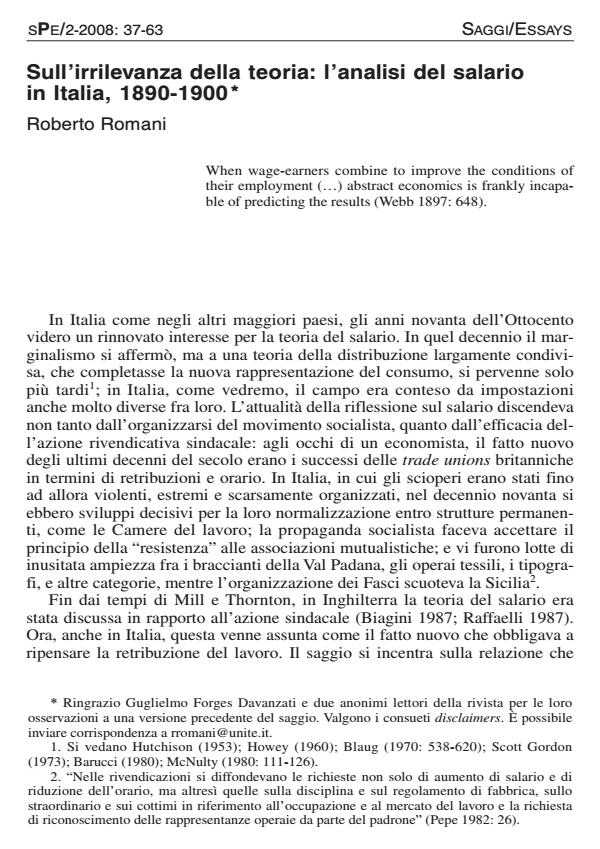Sull’irrilevanza della teoria: l’analisi del salario in Italia, 1890-1900
Journal title STORIA DEL PENSIERO ECONOMICO
Author/s Roberto Romani
Publishing Year 2009 Issue 2008/2
Language Italian Pages 27 P. 37-63 File size 647 KB
DOI 10.3280/SPE2008-002002
DOI is like a bar code for intellectual property: to have more infomation
click here
Below, you can see the article first page
If you want to buy this article in PDF format, you can do it, following the instructions to buy download credits

FrancoAngeli is member of Publishers International Linking Association, Inc (PILA), a not-for-profit association which run the CrossRef service enabling links to and from online scholarly content.
On the irrelevance of theory: the analysis ofwages in italy, 1890-1900 - The essay deals with the Italian economists’ debate on wages at the time of the advent of trade unions. This new fact altered the wage level and prompted Italian economists’ to reconsider the principles and circumstances shaping wages. It is argued that abstract economic theory such as Pareto’s and Pantaleoni’s exerted little influence over the ongoing public debate. Yet economists of less abstract leanings that is, inspired by Marshall or Schmöller rather than Walras played a crucial role by disseminating among the public the ideas and experiences current in more developed countries and in Britain in particular. As usual in second comer countries, economists came to embody ‘modernity’, although the relatively backward social and political situation of Italy made imitation impossible in practice (e.g. paying the high wages recommended by Brassey, Brentano, and others). JEL classification: B13, B15, J58. Keywords: wage; trade unions; Pareto; historical school.
Roberto Romani, Sull’irrilevanza della teoria: l’analisi del salario in Italia, 1890-1900 in "STORIA DEL PENSIERO ECONOMICO" 2/2008, pp 37-63, DOI: 10.3280/SPE2008-002002